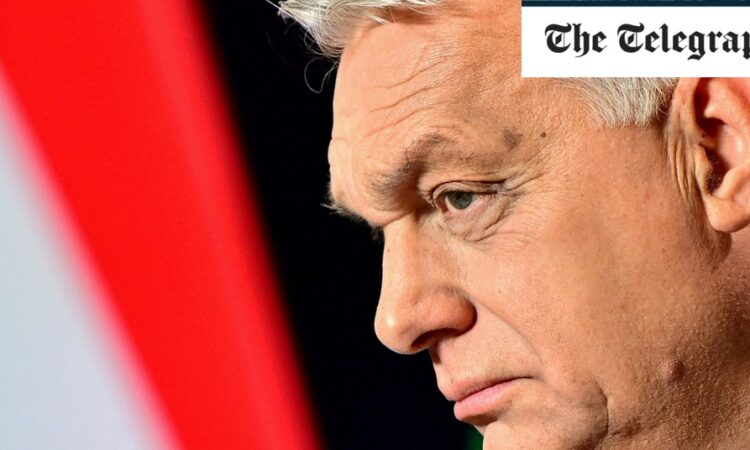
“The stakes are getting higher,” says Zoltán Török, a Hungarian economist at European bank Raffeissen. “Both Budapest and Brussels are interested in a compromise. [But] one cannot be 100pc sure that the compromise will be achieved.”
Hungary blocked the aid payment to Ukraine in December shortly after EU leaders agreed to membership talks with Kyiv. Orbán, who is seen as close to Vladimir Putin, argued that Ukraine should not be handed billions of euros to aid its war effort as it was not an EU member.
However, other European leaders are growing impatient with what they see as Russian sympathies and anti-democratic values in Budapest.
Hungary spent much of the last year locked in a separate row with the bloc about rule of law and human rights that saw €22bn of funds frozen. €10bn of that was unlocked in December after a compromise was reached.
The new plans to put economic pressure on Budapest over the Ukraine issue suggest the dispute is “jumping from technocratic level to the political level”, says Török.
The EU has considerable leverage. Tomas Dvorak from Oxford Economics says: “Hungary is possibly the most vulnerable economy within the EU to this sort of pressure.”
The central European nation has only just begun recovering from its longest recession on record and a loss of promised EU funds could hobble its economic improvement.
Valerijs Rezvijs, at S&P Global Ratings, estimates Hungary could ultimately be eligible for up to €29bn in EU cash, which is equivalent to 15pc of the country’s GDP.
“The potential growth impact [of withholding funds] may be substantial,” says Rezvijs. “Although progress was made on around €10bn last year, the majority of the remaining funds are yet to be accessible to Hungary.”
S&P warned in December that it could downgrade Hungary’s credit rating if “the EU significantly cuts funds”.
In a briefing note from November, the European Commission said: “Nationally financed public investment is expected to fall substantially over the forecast horizon, while the EU-funded investment projects are set to accelerate.”






